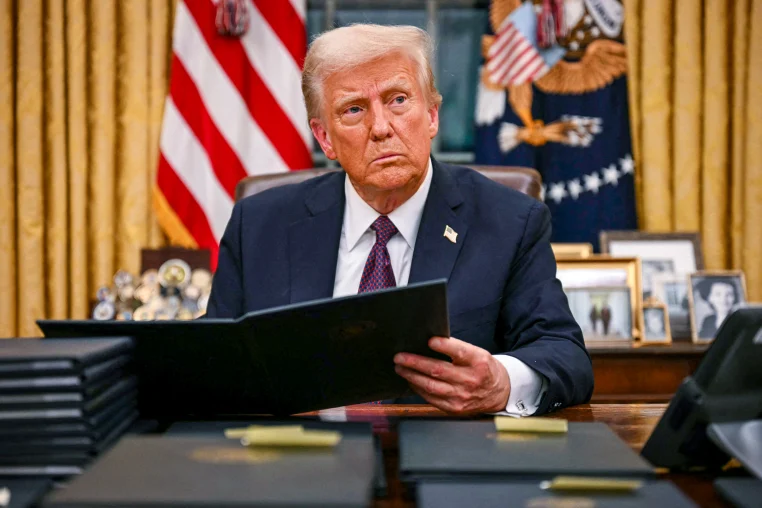US President Donald Trump has signed an executive order aimed at ending birthright citizenship, a right guaranteed by the US Constitution for over 125 years. This move is part of a broader effort to reshape federal immigration and border policy through a series of executive actions, many of which are expected to face significant legal challenges.
The 14th Amendment to the Constitution clearly states that “all persons born or naturalised in the United States, and subject to the jurisdiction thereof, are citizens of the United States and of the State wherein they reside.” Despite this, Trump has directed federal agencies to stop issuing passports, citizenship certificates, and other documents to children born in the US to undocumented immigrant parents or temporary visa holders.
Trump’s order has sparked immediate backlash, with the American Civil Liberties Union and other advocacy groups filing a lawsuit challenging the action in federal court just hours after it was issued. Critics argue that this move is unconstitutional and would create a permanent subclass of people born in the US but denied full rights as Americans.
The president has also cited extraordinary presidential powers to effectively suspend US asylum law, authorizing officials to “repel, repatriate, or remove” migrants and suspending their “physical entry” into the US. This far-reaching order has raised concerns about the potential consequences for migrants and the rule of law in the US





Add Comment